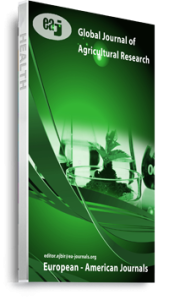Field experiment evaluated effects of compost levels on growth and yield of upland rice, and soil chemical properties was carried out in Department of Agronomy Teaching and Research Farm, Delta State University, Asaba Campus in two cropping seasons. The compost was formulated with rice husk and cowdung at the ratio of 7:3, water was added during turning at weekly intervals for twelve weeks. It was applied at four levels: 0, 2.5, 5.0 and 10.0 t ha-1, while inorganic fertilizer was applied at 200 kg ha-1. The experiment was laid out in randomized complete block design with four replicates. Parameters measured were plant height, number of leaves, total leaf area, plant girth, dry matter, rice yield and soil chemical properties were soil pH, organic matter, nitrogen, phosphorus and exchangeable bases. Data were subjected to analysis of variance and means were separated with DMRT at 5% level of probability. The result shows that 10.0 t ha-1 of compost manure had highest plant height, plant girth, number of tillers, dry matter and rice yield at second season while the inorganic fertilizer had highest in all growth parameters in first season. All the levels improved the soil chemical properties than the inorganic fertilizer and 0 t ha-1. Therefore, 10.0 t ha-1 could be recommended for farmers in Asaba.
Keywords: NERICA, Organic Manure, Soil fertility, application rates, rice waste

